(Photo: Twitter)
Dr Muhammad Abdul Bari
The success of an organisation depends on effective leadership as well as key attributes such as the professionalism and healthy relationship between members. For Muslims, it is naturally expected that individuals will not only maintain a high level of professional competence and mutual respect but also bring vital elements of Islamic etiquette such as courtesy and humility in words and action.
A high level of professionalism is what Allah expects from the believers. In a powerful hadith, Prophet Muhammad pbuh said: “Allah has prescribed that you do everything in an excellent and in a nice manner …” (Sahih Muslim).
The Arabic word Ihsan (excellence) used in this hadith is significant as it has other relevant meanings e.g., Godliness and beautifulness. In Islam, courtesy and humility are the embodiment of excellent manner (Akhlaq). The Prophet said, “Allah has sent me as an apostle so that I may demonstrate the perfection of character, refinement of manners and superiority in behaviour.” (Malik)
Open-mindedness, approachability and fairness are part of a long list of essential qualities for members of any effective organisation. In times of any disagreement, courtesy is highly desirable before one’s ego sets in, relationships turn sour and the whole organisation suffers.
Courtesy does not cost anything and it is a higher level of charity (sadaqah); this could start with a smile that brings people closer. Humility is a deeper form of spirituality that helps bring hearts together.
The essence of professionalism is about making a serious effort to improve performance, aiming towards perfection, in terms of individual efficiency and organisational effectiveness. Showing respect to others, irrespective of people’s backgrounds is to appreciate one’s natural human dignity; “And We have certainly honoured the children of Adam” (Al-Qur’an 17:70). Each one of us is unique in the eyes of Allah; each will have to face Him and give our accounts on the Day of Judgement.
Through divine disposition, we have diversity in our thoughts and approach in life, as no human being is a clone to another. What brings unity in diversity are human values and positive character traits. Dignified dealings between members of an organisation are no less important than dealings with one’s family members and friends.
Due to a number of recent incidents facing well-known charities, Muslim organisations have been making serious efforts to develop a stronger discipline with rules of governance and codes of conduct for members. However, they must make sure that professionalism is not just about implementing rules and policies but keeping dignified human dealings at the core.
A well-thought-out code of conduct is vital for internal harmony, especially in the wake of a global weakening of moral compunction and public ethics. Rules have legal implications; a code of conduct is to bring civility and smoothened mutual relationships to improve organisational effectiveness.
The applications of any rule or a code of conduct need common sense judgement and a proper understanding of the context. While principle and core values should never be compromised, undue rigidity or leniency in implementing a rule or a code of conduct can render the process ineffective and bring more internal disharmony.
Key features that make an organisation more effective:
1.Transparency and accountability: A big challenge in any organisation is the lack of transparency and accountability in governance and financial dealings. Muslim organisations should be at the forefront in this area, which is also a religious imperative for any Muslim action – individual or collective. Unfortunately, some Muslim organisations including mosques are not robust enough in this crucial area. The focus on financial probity and proper attention to due regulatory processes cannot be overemphasised. As a simple example, the Friday Jumu’ah cash collection boxes in a mosque should be counted in the presence of independent witnesses and the amount of collection should be pinned on the notice board that very day.
2. Candid honesty: Muslims are brothers in faith (Al-Qur’an 49:10); however, according to a (Abu Dawud) hadith, “One believer is a mirror to another”. This means a Muslim has a responsibility to rectify another Muslim’s fault, albeit in an honest courteous way. The culture of “brotherhood” (the pejorative term is Biradari in some cultures that lacks the candidness of feedback) could be one of the causes of organisational underperformance or failure. As a result of lessons learnt from these mistakes and external pressures, rules-based professionalism has been a demand in the community and many organisations have now come a long way in bringing the required robustness in professionalism. But “sky is the limit”, as the proverb goes; there must be a relentless effort to professionalise our mosques and other organisations to perform better, especially by bringing youthful energy.
3. Clarity in communication: A successful organisation uses clarity, conciseness, and precision as tools to reach out to its own members on the one hand and relevant partners or agencies on the other. This internal (vertical and horizontal) and external communication is vital to reduce gaps and mistrust among members and stakeholders. If members are informed and engaged they feel empowered, the relationship is strengthened and ideas flow. Successful organisations encourage human interactions and consistently make optimum use of written or electronic communication, formal or informal, to achieve their effectiveness.
4. Ethos of team-working: There are rights and obligations in any group work or team endeavour. The spirit of everyone serving everyone brings humility and develops a better team spirit whilst also bringing synergy and positive attitudes to achieve the organisational goals. Clarity of individual and group roles is vital, as is the need to give all the members equal respect and dignity.
5. A positive organisational culture: The character of an organisation should represent the shared values and practices of its members. A positive culture is based on a “glass half-full” attitude and mutual empathy among members. A positive culture will ensure that the members are happy and better performing. Role models or exemplars in the management can help exert positive peer influences.
6. Ethos of consultation: Consultation is part of group decision making, starting from a family to a nation. Their affairs are based on consultation among them (Al-Qur’an 42:38). Every organisation has its unique culture, including a practice of consultation. Consultation is about getting ideas from various perspectives so that the optimal outcome can be achieved; “two heads are better than one”. It has to be genuine and developed as an essential organisational practice, not just for tick-boxing. This ethos, if embedded in an organisation, teaches respect for others and builds trust among members.
Conclusions
The key to success in this world and the Hereafter is to remain purposeful and disciplined in life. We need to remain thoughtful and self-motivated in our personal and social life as well as in our commitment where we work.
There is always a temptation to engage in trivialities or in discussions that can waste invaluable time, but we should constantly remind ourselves of the purpose of our short uncertain life in this world. In order to avoid individual and collective loss it is important we behave ourselves meaningfully in our family and professional life. We need clarity of thoughts to conduct the affairs of our organisations with more respect and better mutual relationships to avoid tensions and achieve collective success.
As humans we may have occasional bouts of unbefitting ideas and our pendulum of thoughts and action can sometimes swing from one end to another, but we must not lose sight that we have a divine purpose on earth.
Even people of faith have often misunderstood or misused their religious texts and resorted to extremism on either end despite being asked to remain in a middle way (Al-Qur’an 2:143). Mediocrity is the enemy, good is not enough. It is time we recognise our pitfalls and try our best to build a successful community and become a genuine force for good in the wider world.
Dr Muhammad Abdul Bari
Educationalist, Parenting Consultant, Author



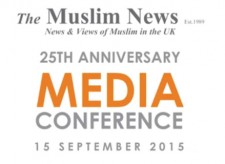
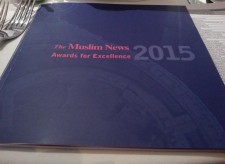
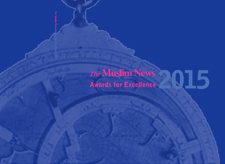
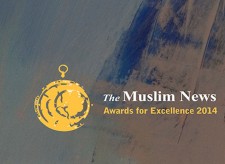


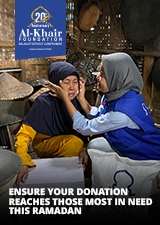








Rashidul HasanJanuary 28, 2019
Wonderdul article. Though basic but very thought provoking. Many many thanks to the writer for the guidelines should be folliwed and practised by most of the muslims as well as Islamic organizations.